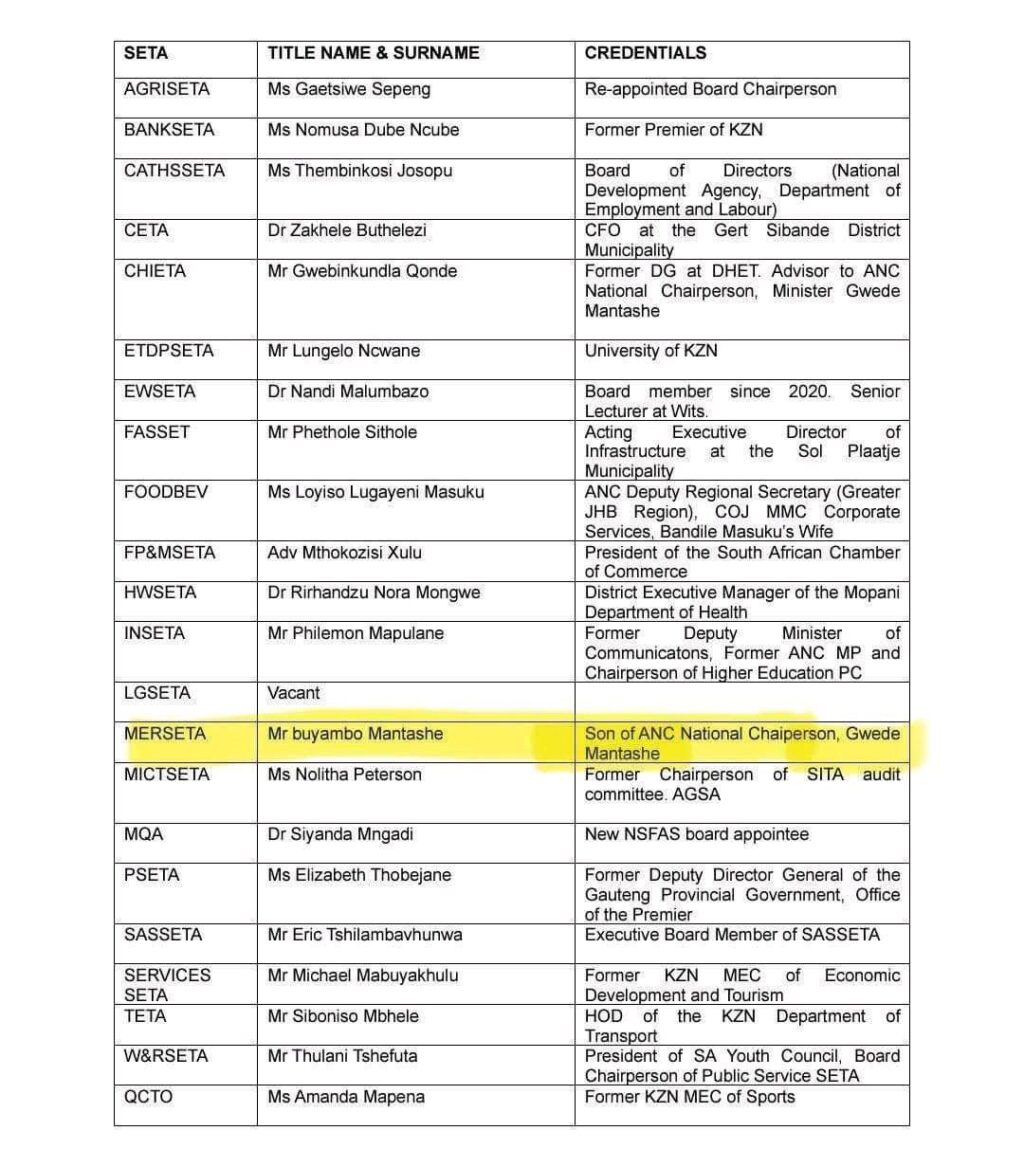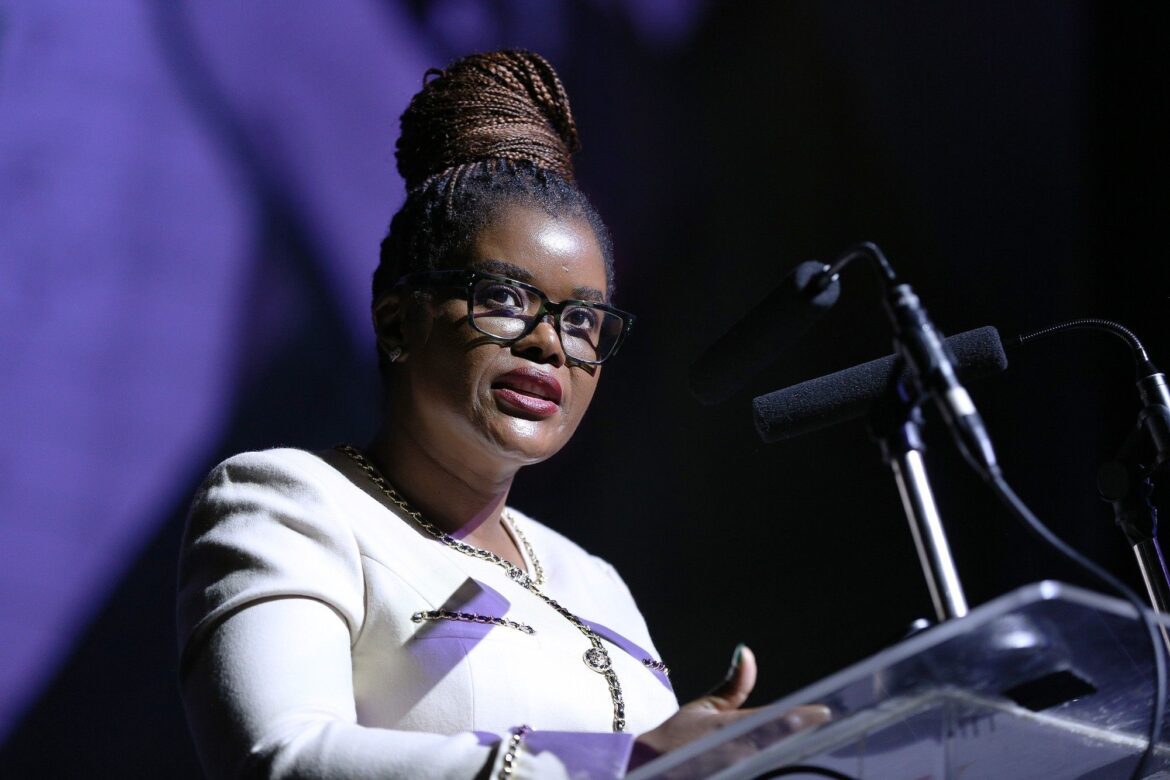A leaked list of appointments to South Africa’s Sector Education and Training Authority (SETA) boards has sparked outrage, with widespread allegations of political favoritism and nepotism tied to the ruling African National Congress (ANC). Among the most controversial appointments are Buyambo Mantashe, the son of ANC heavyweight and Minister of Mineral Resources and Energy, Gwede Mantashe, as the new chair of MERSETA, and Nomusa Dube-Ncube, former Premier of KwaZulu-Natal, appointed as the chair of BANKSETA.

These appointments, approved by Higher Education Minister Nobuhle Nkabane, have ignited a fierce backlash from opposition parties, with both the Democratic Alliance (DA) and the Economic Freedom Fighters (EFF) accusing the ANC of undermining meritocracy and transparency in favor of patronage politics. Critics argue that the selection of high-profile ANC-linked figures to key SETA positions is another example of cadre deployment—a system where political allies are placed in influential roles, regardless of qualifications or experience.
The appointment of Buyambo Mantashe to MERSETA, a body responsible for advancing skills development in the manufacturing sector, has raised particular concern due to his close family ties to a powerful ANC minister. Meanwhile, the appointment of Dube-Ncube to lead BANKSETA, a critical body in the financial sector, has further fueled suspicions that the ANC is using SETA boards as political stepping stones rather than fostering the necessary expertise for South Africa’s skills development needs.
As the controversy continues to unfold, the DA and EFF have called for greater accountability and a re-evaluation of the merit-based process behind SETA appointments. They argue that such politicized decisions hinder the country’s efforts to strengthen its education and training frameworks, ultimately compromising the very institutions meant to address South Africa’s critical skills gap.
With public trust in government bodies already under strain, these contentious appointments could further damage the reputation of South Africa’s educational and developmental sectors, making it an issue that demands urgent attention and reform.
